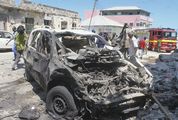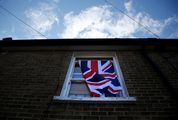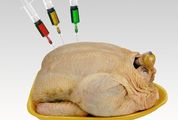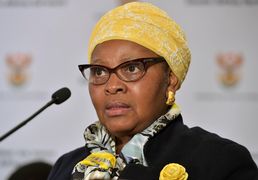The hostel where locals feel like refugees
by Nce Mkhize
2016-06-30 10:43:04.0
ELECTION posters at Glebelands Hostel are a thin mask for the hostel’s frightening reputation.
In less than two years, at least 62 people have been killed at the hostel in the south of Durban, in what has been described as a quasipolitical war.
It started as a fight over the allocation of beds but has escalated into an intra-ANC strife.
Although police have been deployed in their numbers in the past few months, their impact appears to have been minimal.
Many of the murders take place in the cover of darkness. However, a few weeks ago Zodwa Sibiya, a female ANC councillor, was shot in the head after being ambushed at Block L — in broad daylight.
Sibiya was a respected member of the community and ANC PR councillor who was closely associated with the late ANC Glebelands chairman, Richard Mbona, assassinated on November 6 2015.
Fearful residents have also called on Public Protector Thuli Madonsela to intervene to stop the killings.
Madonsela has visited the hostel at least twice in the past 12 months, and has promised to probe and deliver a report on the cause of the violence and those responsible for it.
Residents, weary of empty promises by government officials to intervene to stem the killing, have also approached the United Nations Human Rights Committee for action.
On a visit to the hostel on Monday, our car’s arrival provokes whistles and raised eyebrows. We quickly approach heavily armed policemen marking time outside an Nyala armoured vehicle.
A youthful member of the public order policing unit, warns us to be careful who we speak to.
"The war here is between Block R and Block 52. If you are seen to be talking to one side, the other side becomes hostile to you," he says.
Many residents here are uneasy and it is not difficult to understand why.
In May last year a key witness was shot and killed outside Umlazi magistrate’s court after giving evidence in a murder case involving one of the alleged hitmen in Glebelands Hostel.
Sibusiso Msane, a hostel resident, says violence and killings have subsided in the past few weeks, and political parties are free to conduct their campaigning inside the hostel.
But the peace is tenuous. "We live from day to day here. We don’t know when the next bout of attacks will come," he says.
Mary de Haas, head of nongovernmental organisation KZN Peace Monitor, says free political activity cannot take place in places like Glebelands, as residents are intimidated by violence.
"Many people feel like refugees and they are doing anything just to survive. The police patrols are taking place but even so people end up being killed. You remember this violence started as protest about appalling living conditions, but the faction led by ANC councillor Robert Mzobe took offence and violence exploded.
"Now, after more than 62 people have been killed, Mzobe has been confirmed as the ANC candidate in the ward. I don’t know whether this violence will end," De Haas says.
Her sentiments are echoed by the deputy chairperson of the Hostel Residents Association (also known as Ubunye BamaHostela Nezakhiwe Zawo), Mthembiseni Thusi, who was himself shot in the leg in the hostel last year.
"We are not happy with what is happening here. But we are trying our best to hold meetings aimed at normalising the situation in the Glebelands Hostel as well as in KwaMashu Hostel. Our people want development, not war," he says.
A barber at the hostel says: "This place is very strange. During the day you don’t hear anything. But next morning you hear that one or two people have been killed. After that people go (about) their own lives as (though) nothing has happened."
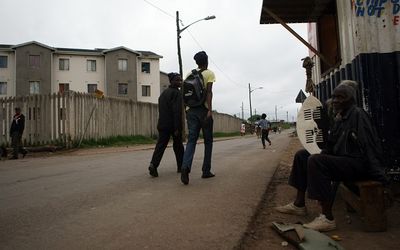
File photo of a hostel in KwaMashu. Picture: SUNDAY TIMES
ELECTION posters at Glebelands Hostel are a thin mask for the hostel’s frightening reputation.
In less than two years, at least 62 people have been killed at the hostel in the south of Durban, in what has been described as a quasipolitical war.
It started as a fight over the allocation of beds but has escalated into an intra-ANC strife.
Although police have been deployed in their numbers in the past few months, their impact appears to have been minimal.
Many of the murders take place in the cover of darkness. However, a few weeks ago Zodwa Sibiya, a female ANC councillor, was shot in the head after being ambushed at Block L — in broad daylight.
Sibiya was a respected member of the community and ANC PR councillor who was closely associated with the late ANC Glebelands chairman, Richard Mbona, assassinated on November 6 2015.
Fearful residents have also called on Public Protector Thuli Madonsela to intervene to stop the killings.
Madonsela has visited the hostel at least twice in the past 12 months, and has promised to probe and deliver a report on the cause of the violence and those responsible for it.
Residents, weary of empty promises by government officials to intervene to stem the killing, have also approached the United Nations Human Rights Committee for action.
On a visit to the hostel on Monday, our car’s arrival provokes whistles and raised eyebrows. We quickly approach heavily armed policemen marking time outside an Nyala armoured vehicle.
A youthful member of the public order policing unit, warns us to be careful who we speak to.
"The war here is between Block R and Block 52. If you are seen to be talking to one side, the other side becomes hostile to you," he says.
Many residents here are uneasy and it is not difficult to understand why.
In May last year a key witness was shot and killed outside Umlazi magistrate’s court after giving evidence in a murder case involving one of the alleged hitmen in Glebelands Hostel.
Sibusiso Msane, a hostel resident, says violence and killings have subsided in the past few weeks, and political parties are free to conduct their campaigning inside the hostel.
But the peace is tenuous. "We live from day to day here. We don’t know when the next bout of attacks will come," he says.
Mary de Haas, head of nongovernmental organisation KZN Peace Monitor, says free political activity cannot take place in places like Glebelands, as residents are intimidated by violence.
"Many people feel like refugees and they are doing anything just to survive. The police patrols are taking place but even so people end up being killed. You remember this violence started as protest about appalling living conditions, but the faction led by ANC councillor Robert Mzobe took offence and violence exploded.
"Now, after more than 62 people have been killed, Mzobe has been confirmed as the ANC candidate in the ward. I don’t know whether this violence will end," De Haas says.
Her sentiments are echoed by the deputy chairperson of the Hostel Residents Association (also known as Ubunye BamaHostela Nezakhiwe Zawo), Mthembiseni Thusi, who was himself shot in the leg in the hostel last year.
"We are not happy with what is happening here. But we are trying our best to hold meetings aimed at normalising the situation in the Glebelands Hostel as well as in KwaMashu Hostel. Our people want development, not war," he says.
A barber at the hostel says: "This place is very strange. During the day you don’t hear anything. But next morning you hear that one or two people have been killed. After that people go (about) their own lives as (though) nothing has happened."



